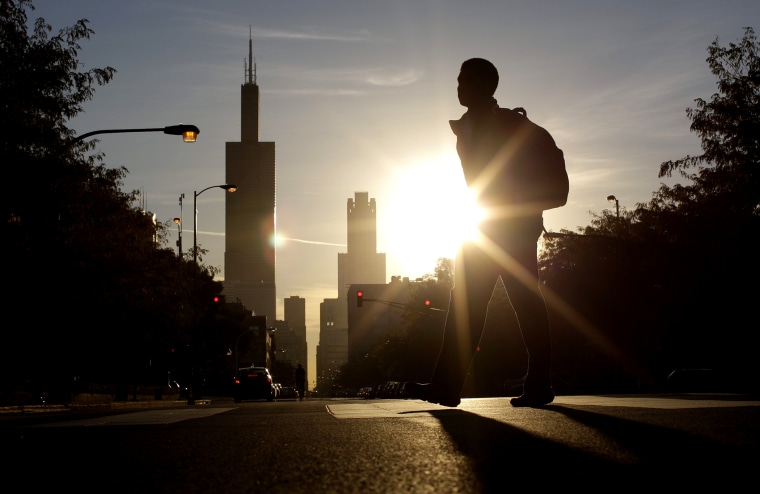CHICAGO— A couple hundred parents, students, and teachers braved the frigid night air on Monday to deliver their holiday wish list to Mayor Rahm Emanuel and Governor Pat Quinn: stop school closings, end the privatization of neighborhood public schools, and eliminate mayoral control of the school board.
The protesters marched from City Hall to the nearby State of Illinois building--where the governor’s Chicago office is located--with signed holiday cards and lumps of coal or candy canes for local politicians, depending on how they’d supported city students and neighborhood schools.
The school board closed 47 public schools over the summer and announced that two additional schools would be phased out by the end of the school year. More than 88% of the students affected by the Chicago closures were African-American and the vast majority of the closed schools were in black and poor communities. Mass closings in other cities like Philadelphia have disrupted the lives of thousands of black and Latino students.
“We want to continue our fight for our schools,” said April Coleman, a teacher at Lane Tech College Preparatory High School. “Just because the strike is over doesn’t mean we were able to get everything that we need for our children,” she said, referring to last year’s teachers strike. “We don’t want the city to forget about us.”
Monday’s march and rally were part of a “National Day of Action” led by teachers unions, community groups and students in dozens of cities across the country including New York, New Orleans, and Philadelphia.
“All students deserve quality education that prepares them for college, meaningful employment, and full participation in democracy regardless of race or economic status,” said Jonathan Stith, national coordinator for the Alliance for Educational Justice, one of many umbrella organizations that helped plan the day. “Current school reform efforts by corporate education profiteers have bankrupted public education and have failed to deliver on its promise. Our children. Our schools. Our solutions. We must stop treating our young people as commodities and reclaim our public schools.”
Shortly before the march and rally, parents, grandparents, and community activists from the Bronzeville neighborhood on Chicago South Side packed a yellow school bus and chugged toward City Hall, picking up dozens of students at a local high school along the way.
“We’ve been working for the last year to bring together people from across the country to form a coalition to continue the movement,” said Jitu Brown, the education organizer for the Kenwood Oakland Community Organization, standing in the aisle of the bus, his voice booming. “Today is not going to change anything overnight. We’re not going to just do this and the school closings end tomorrow. This needs to be sustained.”
April Stogner, had three kids educated in the Chicago Public Schools and has two young grandchildren who will be entering in the coming years. She said she’s fighting for her grandchildren’s futures.
“If the school closings don’t end, they won’t have a neighborhood school to attend,” Stogner said. “The big fight has been to get a moratorium on the closings. No matter how much we rally, no matter how much we march, it’s as if the school board and the mayor have their minds made up already. But we have to keep fighting."
“All across the country, people are going through the same things we are,” Stogner said. “And all across the country people care about the same thing we do—the education of our children.”
The day of action was organized in part by the American Federation of Teachers, the National Education Association and local community groups across the country. According to the AFT, some 90 events were planned in various cities, including rallies, town hall meetings and teach-ins.
“Too often public schools are subject to budget cuts and privatization. Now, communities are coming together to build a new vision for our schools and our children—one that champions great public schools as the heart of our neighborhoods,” the Philadelphia Coalition Advocating for Public Schools said in a statement. (In Philadelphia, 24 schools were closed over the summer.) “We will continue to build on this day of action to strengthen and sustain our movement.”
